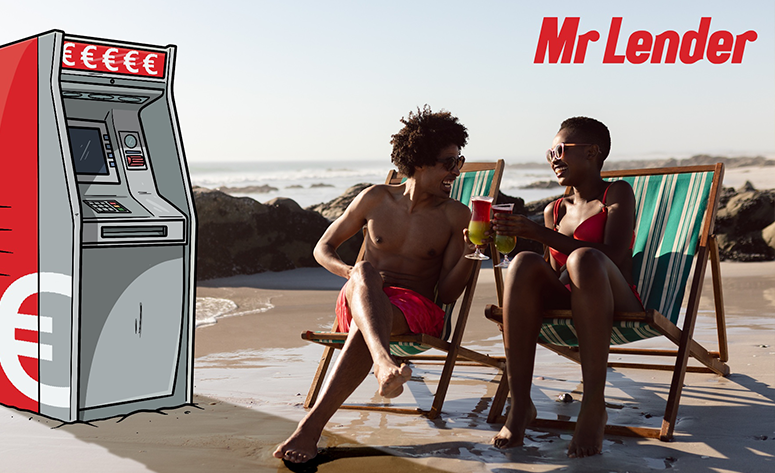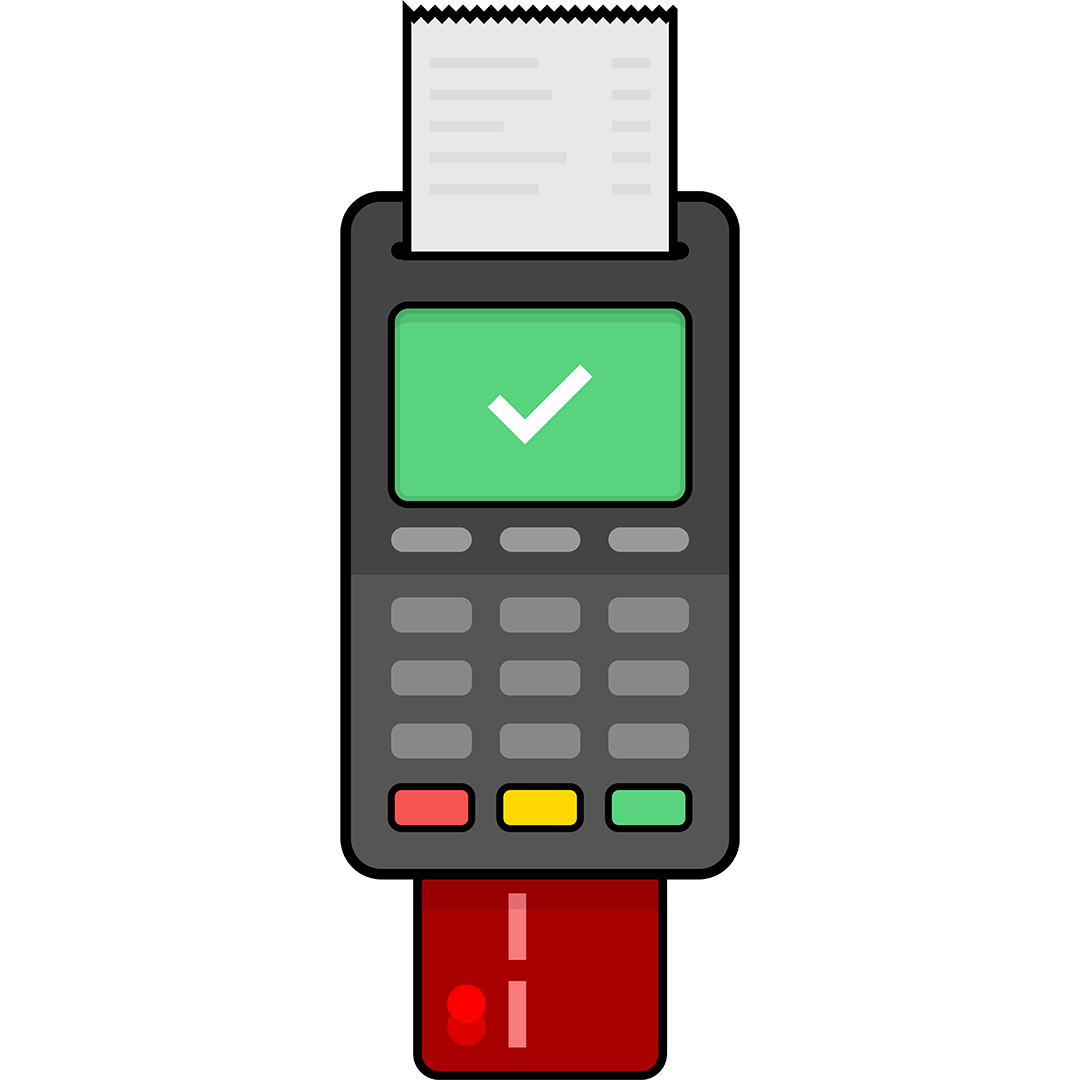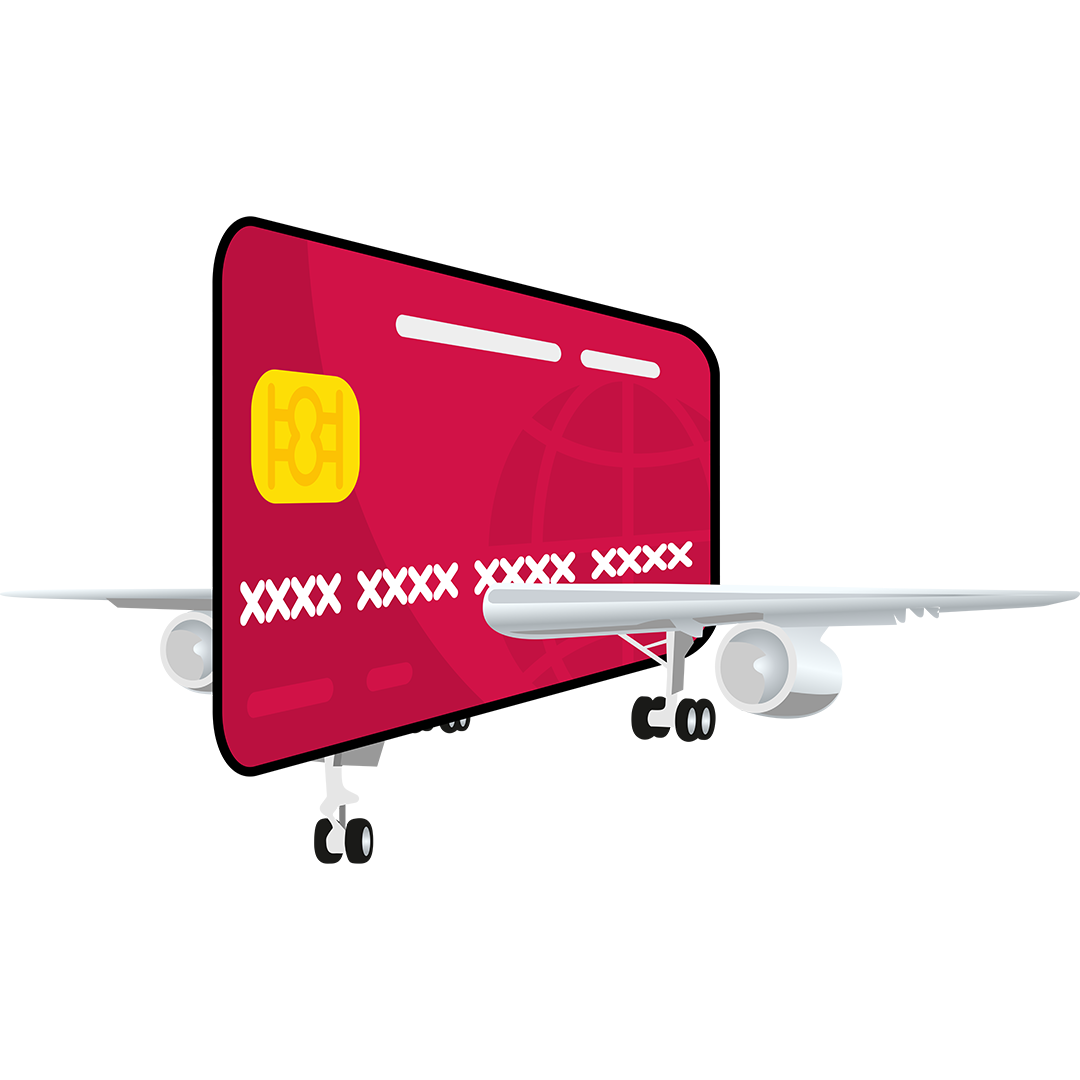Published: 02/06/2023
and written by P Smith

With many people starting to consider booking their summer holiday, it might be worth refreshing your memory on the best ways to get the most out of your money when travelling, without incurring transaction fees and interest charges. Mr Lender has compiled a list of the various payment methods commonly used abroad and the pros and cons of each one.
CASH

In the UK, we have got very used to using contactless payments, but the most common approach to spending abroad is to use cash. Make sure you convert any cash to the currency that you need before you travel and shop around for the best rates. Converting cash at the airport or your destination can often be more expensive. The advantages of spending cash include knowing exactly how much money you are spending as your rate of exchange is locked in. This means you can budget your spending before you go, without worrying about interest charges or transaction fees. Also, keep in mind that some places are not always happy to accept large-value notes. Make sure you keep your money in a safe and secure place such as a hotel safe or money belt when out and about. |
DEBIT CARDS

Using a debit card is the easiest way to spend and withdraw money while on holiday, but this can be pretty expensive. This is because there are less regulations on the charges that can be added onto debit card transactions compared to credit cards, sometimes resulting in high tariffs for spending abroad. Although your bank will provide you with the closest exchange rates, it usually adds a ‘non-sterling transaction fee’ of about 3%. Many debit cards also charge a flat fee (typically 50p-£1.50) each time you spend overseas, regardless of the amount. To reduce the amount of fees you are charged on transactions, it may be wise to make bulk purchases, or fewer, larger, cash withdrawals when using a debit card. You could also consider looking at challenger banks like Monzo or Revolut whose fees are often a lot lower or, in some cases, free.
|
TRAVELLER’S CHEQUES

Not as commonly used as they once were, traveller’s cheques are still available at most post offices or banks. They work by converting pounds sterling into the foreign currency of your choice while abroad. When purchasing your traveller’s cheques, make sure you avoid unnecessary charges or fees. Some credit card companies will charge you for purchasing traveller’s cheques for a cash withdrawal, and the traveller’s cheque provider may also charge a fee. However, there is usually no fee when purchasing them with a debit card, but it’s best to confirm this before placing your order. Like debit cards, traveller’s cheques are easy to cancel to prevent anyone else from attempting to use them, with replacements usually sent out within 24 hours. Just make sure you sign all your cheques upon receiving them and make note of the serial numbers on the cheques, otherwise, if they are stolen someone else can put their own signature on them and easily use them. However, not all places abroad will accept them, so it’s advisable to check beforehand that the hotel you are staying at, or other places you intend to visit nearby, will accept them. |
PREPAID TRAVEL CARD

Prepaid cards are becoming more popular these days, and they work just like credit cards, with the only difference being that they must be topped up with funds before you use them, instead of being paid off afterwards. This payment method allows you to benefit from the most competitive exchange rates, without the need to shop around, which are fixed throughout your trip. There are two options:
Standard prepaid cards are designed to be used in the UK but also work abroad for cash withdrawals and card transactions. A charge is made at the exchange rate each time you use it abroad.
Travel prepaid cards are loaded with foreign currency instead of pound sterling, meaning you will be charged a single exchange rate at the point of topping up the card instead of every time you use the card.
As they are provided by major card companies, prepaid travel cards are recognised across the globe, and it’s convenient to top up at any point on your travels. However, it’s always a good idea to carry some cash with you as well, just in case you come across somewhere that doesn’t accept card payments.
|

Mr Lender is a multi-award winning lender and is rated five stars on Trustpilot by customer reviews. So why would you choose anyone else for your short term loans?

|







